
CORONAVIRUS DISEASE COVID 19 NEWS AND RESEARCH
Latest Coronavirus Disease COVID 19 News and Research
Discovering a molecule that could interfere with SARS-CoV-2 replication
In this interview, News-Medical speaks to Stepan Nersisyan about his discovery of a molecule that could replicate SARS-CoV-2.
Inhibition of SARS-CoV-2 with antisense oligonucleotides
A part of the severe acute respiratory syndrome coronavirus 2 (SARS-CoV-2) viral RNA is highly conserved. Researchers have used this as a target for designing antisense oligonucleotide gapmers to cleave the RNA and disrupt virus replication. Their research is published as a preprint on the online server bioRxiv in September 2020.
Scientists discover druggable pocket that could help eliminate COVID-19
A druggable pocket in the SARS-CoV-2 Spike protein that could be used to stop the virus from infecting human cells has been discovered by an international team of scientists led by the University of Bristol.
Cats’ immune system can deal with SARS-CoV-2, shows study
On 8 May 2020, the Institute of Agrifood Research and Technology (IRTA) reported the case of the first cat infected with SARS-CoV-2 in Spain. It was a 4-year-old cat called Negrito, who lived with a family affected by COVID-19, with one case of death.
Social contacts increase again despite coronavirus
At the beginning of the month, 60 percent still restricted themselves in this regard. At the same time, the proportion of people concerned about the impact of the virus on their social relationships fell to 15 percent.
COVID-19 poses a unique threat during hurricane evacuations
The 2020 hurricane season is breaking records with 23 named storms, and more are projected to develop over the next few weeks.
Nanoparticle SARS-CoV-2 model could potentially speed the search for drugs
A team of scientists from the National Center for Advancing Translational Sciences and Naval Research Laboratory in Washington, D.C., has developed a new tool that mimics how SARS-CoV-2 -- the virus that causes COVID-19 -- infects a cell, information that could potentially speed the search for treatments against the disease.
Belief in pandemic conspiracy theories is an obstacle to minimize the spread of COVID-19
Belief in conspiracy theories about the coronavirus pandemic is not only persistent but also is associated with reluctance to accept a COVID-19 vaccine when one becomes available and to engage in behaviors such as mask-wearing that can prevent its spread, according to researchers at the Annenberg Public Policy Center.
Study detects key differences in immune responses of adults and children with COVID-19
The first study comparing the immune responses of adults and children with COVID-19 has detected key differences that may contribute to understanding why children usually have milder disease than adults.
Strength, duration of immunity will shape the future trajectory of COVID-19
New research suggests that the impact of natural and vaccine-induced immunity will be key factors in shaping the future trajectory of the global coronavirus pandemic, known as COVID-19.
People with severe dementia are unaware of COVID-19 outbreak, indicates study
The ongoing coronavirus disease 2019 (COVID-19) pandemic has substantially affected patients with dementia and their caregivers.
COVID-19 mitigation efforts significantly decrease influenza activity
The mitigation strategies implemented to curb the spread of COVID-19 appears to reduce the transmission of influenza in the United States, Australia, Chile, and South Africa. These strategies may augment influenza vaccines, especially for high-risk populations during the seasonal influenza transmission.
Screening university students could reduce community COVID-19 burden
Researchers in Canada and the United States report that screening students for infection with severe acute respiratory syndrome coronavirus 2 (SARS-CoV-2) as universities re-open this fall could reduce the burden of coronavirus disease 2019 (COVID-19) in the broader community.
COVID-19 lockdown measures reduced air pollution in Southeast Asia
In an attempt to contain the spread of the disease, many countries worldwide, including Malaysia and other Southeast Asian (SEA) countries, have enforced lockdowns of varying degrees, which has inadvertently caused some positive changes to the environment.
A cost-effective scalable production of SARS-CoV-2 RBD in yeast
A new study by the Argentinian AntiCovid Consortium and published in the preprint server bioRxiv* in September 2020 reports on the successful characterization of the conformation and stability of the SARS-CoV-2 spike protein receptor-binding domain (RBD) in two different cell systems. This may help to accelerate the development of vaccines and neutralizing antibodies.
Research underlines SARS-CoV-2 N-terminal domain of Nsp1 as a potential drug target
A recent study reveals how the non-structural protein 1 (NSP1) of severe acute respiratory syndrome coronavirus 2 (SARS-CoV-2) plays a crucial role in inhibiting the host cell protein synthesis but simultaneously facilitating the viral protein synthesis.
Oncology nurses should be routinely tested for SARS-CoV-2, warn researchers
Researchers from the NHS Foundation Trust, University of Cambridge and Cambridge Clinical Laboratories have warned that until a vaccine for severe acute respiratory syndrome coronavirus 2 (SARS-CoV-2) becomes available, antigen and antibody testing should be carried out among oncology nurses as part of routine patient care.
BU researchers find how SARS-CoV-2 infection may drive deadly lung inflammation
Responding to the COVID-19 pandemic caused by the novel coronavirus, SARS-CoV-2, requires models that can duplicate disease development in humans, identify potential targets and enable drug testing.
Using computer simulations to examine personalized mechanical ventilation of COVID-19 patients
Initial clinical guidelines for mechanical ventilation of COVID-19 patients suggested following standard approaches used in the treatment of acute respiratory distress syndrome (ARDS), which is characterized by rapid onset of widespread inflammation in the lungs.
Without Ginsburg, judicial threats to the ACA, reproductive rights heighten
On Feb. 27, 2018, I got an email from the Heritage Foundation, alerting me to a news conference that afternoon held by Republican attorneys general of Texas and other states. It was referred to only as a "discussion about the Affordable Care Act lawsuit."
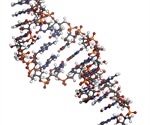
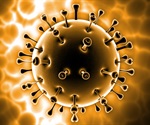
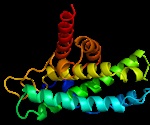

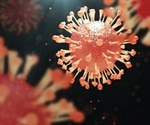
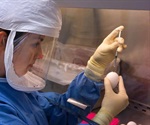
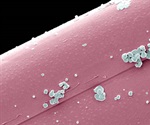
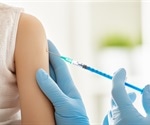


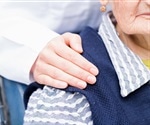
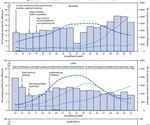
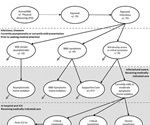

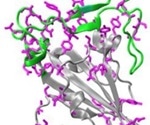
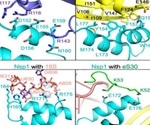
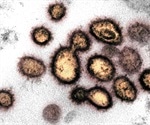



































No hay comentarios:
Publicar un comentario